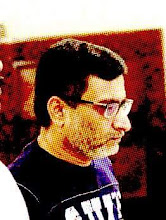The ancient Greek philosopher Permanides of Elea, said to have lived around fifth BC, is credited with impacting the thoughts of Plato who in turn influenced the whole of Western Philosophy.
In his work On Nature, the first part called the Way of the Truth deals with the changeless and timeless nature of the world. His student Zeno created three paradoxes that supported these ideas.
- Achilles and the Tortoise divides space into infinite points and says it is impossible for Achilles to catch up with the Tortoise ever so infinitesimally.
- The Dichotomy paradox says it is impossible to move because you can keep on dividing the remaining distance by two and you can never complete the first part.
- Arrow Paradox says it is impossible for anything to move, since any object such as an arrow at any instance during its apparent movement is static.
These paradoxes points to the strange nature of the reality. Contrary to our intuitive experiences, these ideas point us to the true nature. While we now have accepted a reality that can only be explained through probabilities and mathematics, this somehow seems to be delegated to the infinitesimally small world of particles.
While these ideas talk about the impossibility of motion , or change, we can relate it to the impossibility of action. Our actions can be classified into voluntary/conscious and involuntary.
A muscle twitch, or scratching our skin, closing our eyelids at a dust particle are done without much conscious involvement. one can say it just happens.
On the other hand we act at times with intention, planning and fully conscious. while it appears we do act, one must take a step backward and look at the intention. If we look at how our thought of intention occurred to us, we can easily see that the though simply happened. we really do not have control over thoughts occurring to us. but we easily accept that the action that follows is ours. So it is clear that all actions which we falsely claim ownership are simply happening.
Permanides followed in his second part The Way of the Opinion, how our senses leads us to falsely believe in a world that appears to be changing, and where there is space and time and there is movement.
A contemplation on who I am, by eliminating all the things that are not me, such as my possessions, name, body etc.. including the thoughts that I seem to get, I realize that I am not connected with this world. Eliminating this false notion of reality, I abide as my Silent , Inactive Joyful Self.

No comments:
Post a Comment